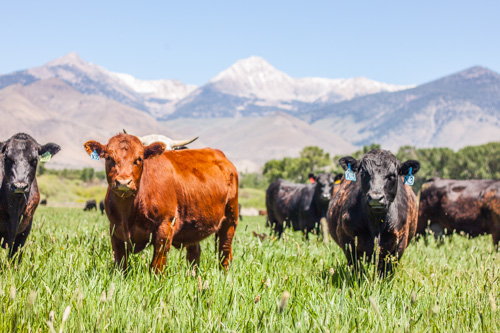A new study shows how lack of vitamin B12 shrinks the brain in vegetarian/vegan children!!!
Also, if the mother is a vegetarian/vegan, the child's ability to absorb B12 is severely reduced!!!

Also, interesting FB post here where this doctor Steven Lin references the same article above:
Also, if the mother is a vegetarian/vegan, the child's ability to absorb B12 is severely reduced!!!
B12 deficiency harms young children's development, and the food relief we provide isn't good enough
Vitamin B12 deficiency in infants leads to poor motor development and anaemia, according to a study from Burkina Faso conducted by the University of Copenhagen and Médecins Sans Frontières. B12 deficiency is an enormous, yet overlooked problem, and the food relief we currently supply is not helping. According to the researchers, the problem calls for new solutions.
In Denmark, cases of poor psychomotor development are regularly seen in young children raised on vegan diets, though such outcomes are preventable with daily B12 supplements. But for children in low-income countries, the chances of ever meeting their vitamin B12 requirements are far worse. This is reflected in widespread B12 deficiency among young children in Burkina Faso, according to a study from the University of Copenhagen conducted in collaboration with Médecins Sans Frontières (Doctor's Without Borders). The results have been published in the journal Plos Medicine.
A lack of vitamin B12 doesn't just potentially lead to anaemia, it can damage the nervous system. And for young children, B12 is crucial for brain development.
"Among the many children who participated in our study, we found a strong correlation between vitamin B12 deficiency and poor motor development and anaemia," says Henrik Friis, first author of the study and a professor at the University of Copenhagen's Department of Nutrition, Exercise and Sports.
For many years, there has been a focus on vitamin A, zinc and iron deficiencies when it comes to malnutrition across the globe, whereas there is a paucity of research on B12 deficiency.
"B12 deficiency is one of the most overlooked problems out there when it comes to malnutrition. And unfortunately, we can see that the food relief we provide today is not up to the task," says Henrik Friis, who has worked with nutrition and health in low-income countries for many years.
Over 1,000 children with acute malnutrition aged 6-23 months participated in the study. The children's B12 levels were measured both before and after three months of daily food relief rations containing the recommended B12 content. When the study began, two-thirds of the children had either low or marginal levels of B12.
Short term food relief does not fill up B12 stores
"During the period when children were provided with food relief, their B12 levels increased, before decreasing considerably once we stopped the programme. Despite provisioning them with food relief for three months, their stores remained far from topped up. This, when a typical food relief programme only runs for four weeks," says Henrik Friis.
Even after three months of food relief, one third of the children continued to have low or marginal levels of B12 stored. The unfortunate explanation is that there is a cap on how much B12 can be absorbed.
"A child's gut can only absorb 1 microgram of B12 per meal. So, if a child is lacking 500 micrograms, it will take much longer than the few weeks that they have access to emergency food relief," explains Vibeke Brix Christensen, a pediatrician and medical advisor to Médecins Sans Frontières and co-author of the study.
"Furthermore, longer-term relief programmes aren't realistic, as humanitarian organizations are trying to reduce the duration of treatment regimens with the aim of being able to serve a larger number of children for the same amount of money," continues Vibeke Brix Christensen.
She points out that it might make a difference to divide the necessary amount of vitamin B12 across several meals, which would probably allow children to absorb the same amount of B12 each time. But the problem is that if widespread B12 deficiency appears among children in low-income countries, it is difficult to do anything about it.
New solutions needed on the table
Preventing B12 deficiency would be the best course of action. Unfortunately, lasting solutions have yet to become readily available according to Professor Friis.
Because our bodies cannot produce B12 on their own, we need to have it supplied to us through animal-based products or synthetic supplements. However, in many low-income countries, access to animal-based foods is incredibly difficult for the general population. One might wonder, are tablets or fortified foodstuffs the way to prevention?
"Possibly, but the problem in low-income countries is poorly resourced and weak health care systems. Handing out tablets to millions and millions of people is not cost-effective. And to enrich foods with B12, it must be added to foodstuffs that are accessible to the poor.
This requires industrial expansion, as many people currently eat only what they can produce themselves. Furthermore, it requires legislation that it is not based on voluntary participation," says Henrik Friis, who has greater faith in other types of solutions:
"Individual households could be incentivized to keep chickens and perhaps goats, which a mother could manage and use to provide access to animal-based foodstuffs. Finally, work needs to be done to develop fermented products with B12 producing bacteria -- something that doesn't yet exist, but towards which researchers and companies are already working," concludes Henrik Friis.
The researchers are in dialogue with UNICEF's Supply Division, based in Copenhagen, about how products to treat moderate to acute malnutrition can be improved.
FACTS:
VICIOUS CIRCLE
ABOUT ACUTE MALNUTRITION
- B12 deficiency can be transmitted from mother to child. If a mother is B12 deficient, her child will be born B12 deficient as well, before receiving breast milk with too little B12 in it. A child's B12 deficiency can affect the formation and regeneration of their intestinal cells. Consequently, the child's capacity to absorb B12 and other vital nutrients will be reduced. In this way, B12 deficiency contributes to the development of malnutrition.
ABOUT THE STUDY
- Since 2010, the Department of Nutrition, Exercise and Sports (NEXS) at the University of Copenhagen has worked with the WHO and UNICEF, among others, with a focus on improving the emergency food relief used to combat childhood malnutrition.
- According to UNICEF, approximately 200 million children under the age of five suffer from malnutrition worldwide. Malnutrition contributes to the death of three million children every year.
- Acute malnutrition in children is characterized by children who are too thin in proportion to their height. Globally, it is estimated that approximately 50 million children are acutely malnourished, with two thirds of these suffering from moderate malnutrition and the remaining third suffering from severely acute malnutrition.
- Today, only about 20% of severely malnourished children receive emergency food relief.
- 1,609 children from Burkina Faso with moderate to acute malnutrition participated in the study. The researchers were able to measure cobalamin serum levels in 1,192 of these children.
- The children received three different types of food relief rations, all of which met with WHO standards.
- The study is a reanalysis of data collected in Burkina Faso under the research project TREATFOOD.
Story Source:
Materials provided by University of Copenhagen - Faculty of Science. Note: Content may be edited for style and length.
Journal Reference:
- Henrik Friis, Bernardette Cichon, Christian Fabiansen, Ann-Sophie Iuel-Brockdorff, Charles W. Yaméogo, Christian Ritz, Ruth Frikke-Schmidt, André Briend, Kim F. Michaelsen, Vibeke B. Christensen, Suzanne Filteau, Mette F. Olsen. Serum cobalamin in children with moderate acute malnutrition in Burkina Faso: Secondary analysis of a randomized trial. PLOS Medicine, 2022; 19 (3): e1003943 DOI: 10.1371/journal.pmed.1003943
Also, interesting FB post here where this doctor Steven Lin references the same article above:
The child pictured here had anemia, brain atrophy, retarded myelination, with the frontal and temporal lobes mainly affected.
They were a 14.5-month child born from vegetarian parents.
We’ve long known that children need nutrients only found in meats for normal growth and development.
After 5 months of supplementation the brain atrophy had recovered, however it’s not always this easy.
One study in Denmark, where cases of poor psychomotor development are regularly seen in young children raised on vegan diets they looked at the affect of reintroducing meats.
A lack of vitamin B12 doesn't just potentially lead to anaemia, it can damage the nervous system. And for young children, B12 is crucial for brain development.
Over 1,000 children with acute malnutrition aged 6-23 months participated in the study. The children's B12 levels were measured both before and after three months of daily food.
There are a few very real factors that compound the impact on a growing child.
B12 deficiency can be transmitted from mother to child. If a mother is B12 deficient, the newborn receives breast milk with too little B12 in it.
B12 affects the gut:
A child's B12 deficiency can affect the formation and regeneration of their intestinal cells. Consequently, the child's capacity to absorb B12 and other vital nutrients will be reduced. In this way, B12 deficiency contributes to the development of malnutrition.
Short term nourishment doesn’t always fix the problem.
Even after three months of food relief, one third of the children continued to have low or marginal levels of B12 stored. The unfortunate explanation is that there is a cap on how much B12 can be absorbed.
https://www.sciencedaily.com/rel.../2022/05/220503141353.htm
Pregnant women need to be educated that a lack of animal foods or highly targeted supplementation may affect the dental, immune, and neurological development of their child.
What are your thoughts?



 .
.
